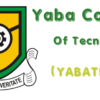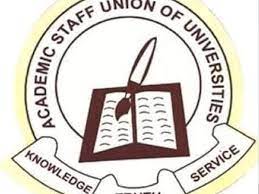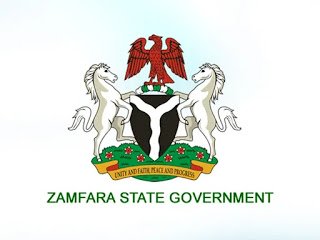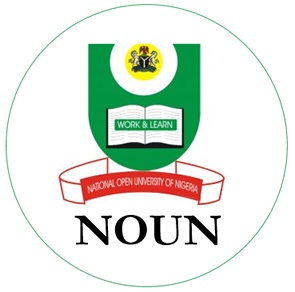It is no longer news that the Academic Staff Union of Universities (ASUU) is on strike due to the failure of the Federal Government to accede to the demands of the union.
Nevertheless, students at the receiving end have accepted their fate and are learning vocational skills, engaging in paid internships, freelance journalism, teaching, creative writing, among others. A cross-section of students told The Nation that the forced ‘vacations’ had proved to be an eye-opener for personal and professional development and money- making.
ALSO SEE: List of Universities that Have Reportedly Pulled Out of ASUU Strike
Ifunanya Osakwe, a Mass Communication student at University of Benin (UNIBEN), said the strike has helped her to achieve some set goals and learn outside school curriculum.
She said: “ASUU strike has affected our academics, but I would not say that its effect on me was only negative. For example, it helped me pursue several goals and I am happy to say that I have achieved some of them.
“Before the strike commenced, I was not so much interested in acquiring skills or learning outside the school curriculum. But now, I can boast of acquiring a caregiver certificate from World Health Organisation (WHO).
“Apart from that I have gone into entrepreneurship and I am also building myself financially. So, in as much as the prolonged strike has affected our educational sector at the tertiary level, most students have also benefited from it.
“The strike became an eye-opener to most students who do not have skills. It made them realise that when they graduate, they will not be able to self- employ themselves. Hence, they needed to improve their skills.
“Although, I have benefited from the ASUU strike, I will like to appeal to both ASUU and Federal Government to consider students in their actions. If we are talking of negotiation then compromise must be made by both parties.”
Bello Hussein Adoto, a 300-Level Medical student at the University of Ilorin (UNILORIN), said: “I was on the verge of finishing my posting exams when ASUU went on strike on February 14. My exams were scheduled to start in March. So, I spent the first few weeks of the strike reading for the exams and hoping the strike would be called off soon. It wasn’t. So, I moved on to other things.
“I had started an internship at the local general hospital during the previous ASUU strike and COVID-19 lockdown. So, I resumed there; going every day of the week.
“I also resumed freelance writing and journalism. I got active on social media groups and freelance platforms so I could secure paid writing gigs, and I did. The gigs kept me away from the hospital for weeks, but I still made time to go.
“Around June, I started two courses on Coursera and AuthorAID, on scientific research writing and communication. Beyond the courses, I also secured opportunities with two national media organisations in Nigeria to contribute articles and news reports. One of my reports is currently in contention for a continental award.
“I am taking a seven months course now on a business I will start soon, whether ASUU calls off the strike or not. The business fits with my course of study and I can manage it even with my academic schedule.
“Overall, the strike was frustrating in its earliest days. I couldn’t put up a long-term strategy because of uncertainty about our resumption. However, the tension got weaker after three months and I moved on to writing full time and scouting for business opportunities. My internship at the hospital helped me greatly in coping with the strike and transitioning into doing other things that pay.”
Abdulwaheed Sofiullah, a student at Usmanu Danfodio University Sokoto (UDUS), said he had attended physical and online trainings on journalism and accessed various journalism opportunities. He is also using this period to work as a freelance journalist.
“The strike allows me to pursue my career as a young freelance journalist. Since the strike began, I had accessed a couple of journalism opportunities. As a final-year student, I wish I had graduated some months ago; but the skill that I was able to develop while on campus keeps me busy during this strike. I was able to attend physical and online training, and also engage myself in different research about the profession. I pray ASUU and Federal Government reach an agreement, so that I could finish my last semester,” he said.
Clarion Olusegun a, student at Adekunle Ajasin University Akungba-Akoko (AAUA), Ondo State, is working towards eradicating violence against women and girls through online campaigns and an upcoming public speaking event.
“I am working towards eradicating violence against women and girls through online campaigns and upcoming public speaking event. I have also been working as a student journalist at Eko FM and Agronigeria,” she said.
Olaitan Babatunde, a student at Federal University Oye-Ekiti (FUOYE), Ekiti State, said: “I am working with a team administering COVID-19 vaccine scale 3.0 as a validator. I am also an administrative manager working at startup company. I have learnt how to create prospect lists using LinkedIn, draft proposals, keep and file records every week and book appointments.”
Initially, Ochayi Emmanuel, a 300-Level student of English and Literature at University of Lagos (UNILAG), felt bad when the strike started on February 14, but rather than brood for long, he resumed his volunteering-internship in the print media, took some online courses on Udemy and learnt how to stream videos on social media channels.










